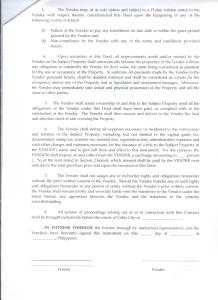Writing the first letter within their June report, president Kevin Graham focused on the ongoing contract negotiations between the city and the FOP as well as the consent decree.


Of the concerns mentioned, Graham stressed the contention of the consent decree, stating that its implementation is the only matter the city is concerned with.
The FOP has been fighting the consent decree since August 29, 2017, when Illinois Attorney General Lisa Madigan filed a lawsuit to obtain reform of the Chicago Police Department. Later approved by the Court on January 31, 2019, the consent decree is a detailed plan of reform actions that is approved and implemented by a federal judge.
The consent decree sets high bar for police accountability and works to protect the civil rights of the people of chicago. Its reforms would initiate comprehensive structural changes through the use of force, community policing and impartial policing, accountability and transparency, recruitment, hiring and promotion, training and supervision, officer wellness, crisis intervention, data management, implementation, enforcement and monitoring.
For a detailed report of the Chicago Police Department Consent Decree provided by the Attorney General, click here. To read the Consent Decree full policies and provisions approved by Judge Robert M. Dow, click here.
The FOP has not signed the decree into their contract, maintaining that the city does not hold sound reasons nor is negotiating in good faith.
The rejection of these policies support the growing anti-police paranoia within the FOP. The Mayor and Attorney General have made it clear that the decree is to correct years of police misconduct through promoting transparency of police action. However, in stating that policies such as changing the buffering time on body camera recording from 30 seconds to two minutes, the FOP overlooks the fact that the decree is a step towards correcting the past and instead labels these changes as the city’s way to frame police.
The consent decree holds the potential to bridge the growing gap between city officials and the FOP if the decree is signed into the proposed contract. One of the striking provisions of the Decree’s goal of accountability and transparency is addressing the code of silence and officer collusion in which “CPD must adopt policies and practices to encourage and protect officers who report misconduct and expressly prohibit retaliation against members of the public who report misconduct.”
Paranoia anxiety and partisan politics have clouded the fact that this provision works to prevent incidents such as the 2014 muder of Laquan McDonald and the further cover up that contributed to a heightened sense of distrust of police.
Further, while FOP officials have previously regarded Mayor Lightfoot’s reform policies as ideological rather than constitutional, the Consent Decree represents one of the most lawful and comprehensive plans of action to promote transparency between police action and citizens in the past 50 years.
Later in their newsletter, attorney Pat Fioretto further described the FOP’s current state in the bargaining process in his column, “City continues with its unilateral (and unlawful) actions.”
Fioretto addressing the development of disagreements in the collective bargaining process that have held the FOP back from contractual agreement with the city.
“Over time and continuing to date, it has become clear that the City’s implementation of the COPA ordinance has resulted in unilateral, mid-bargaining changes to mandatory subjects of bargaining established in the expired collective bargaining agreement.”
The FOP repeated filing of lawsuits against the city have elongated the process of agreement, despite the fact that an administrative law judge ruled that the city violated the State Labor Relations Act on two accounts.
Ultimately, it is likely that negotiations between the city and the FOP will continue in this manner. While the National FOP’s suit filed against the attorney general regarding the consent decree has reached the Supreme Court Docket, narratives of “roadblock communication” between the city and FOP are almost guaranteed to persist.
These conflicts, both within news media of police accountability cases and lawsuits filed by the FOP, create a space for anti-police sentiment and further divide elected officials from city police force.
The consent decree’s future and tentative implementation is critical to both the FOP operative structure and the way the public views its police force.
FOP Watch is a blog series that usually appears once a week. Check out a previous entry by following this link.
.



